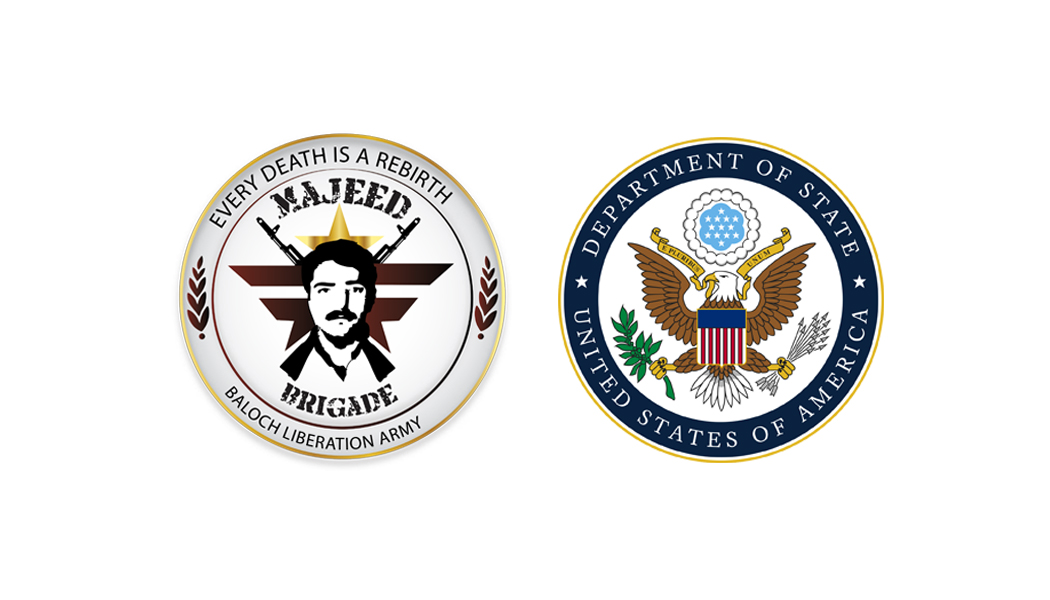US adds BLA and its suicide wing to terror list, but impact likely symbolic. Washington’s move comes amid warming ties with Islamabad and new trade deals, but analysts say it will do little to curb the group’s insurgency. BLA’s funding and operations remain rooted in illicit networks beyond the reach of US sanctions.
The US State Department has added the Baloch Liberation Army (BLA) and its suicide squad, the Majeed Brigade, to its list of Foreign Terrorist Organisations (FTOs), according to a statement released on Monday.
The BLA, a separatist group in Pakistan’s Balochistan province, was designated a terrorist organisation by the US in 2019 and by the UK in 2006.
What the designation means
According to the State Department, being placed on the FTO list means:
- The US seeks to curb a group’s financing and encourage other nations to follow suit, while isolating the group internationally.
- Donations, contributions, and any economic transactions with the group are deterred.
- It increases public awareness and signals to other governments Washington’s concerns about the organisation.
- In the US, providing material support such as funds, weapons, training, or recruitment to an FTO becomes a federal crime.
- Members and supporters may face travel bans, deportation, and the freezing of their assets in the US and countries cooperating with US counter-terrorism efforts.
Will it affect the BLA?
For Islamabad, the move represents a diplomatic win. But in practical terms, analysts say it is unlikely to dent the BLA’s operational capability.
The group’s survival depends on two core resources: money and manpower. Its funding does not rely on US or Western sources, nor on formal banking channels, but rather on illicit activities. The BLA has no overt political presence in the West, and its members do not travel to the US or Europe, limiting the impact of travel restrictions or asset freezes.
A similar designation in 2019 did not weaken the group, and adding the Majeed Brigade to the list is unlikely to change that. In some cases, such measures can even boost a militant group’s profile, making it a more prominent actor in the conflict.
Why now?
The announcement comes less than two weeks after Washington and Islamabad finalised a trade agreement expected to allow US companies to help develop Pakistan’s untapped oil reserves in resource-rich Balochistan, while also lowering tariffs for Pakistani exports. This announcement has also come days after Pakistan’s powerful army chief General Asim Munir visited the United States twice in two months.
It also coincides with what observers describe as the “best period” in US-Pakistan relations in recent years. Pakistan’s government has even nominated the US President Donald Trump for the Nobel Peace Prize. Some analysts suggest the designation is part of a diplomatic quid pro quo, similar to 2019, when the Trump administration blacklisted the BLA after Pakistan played a pivotal role in facilitating US–Taliban peace talks in Afghanistan.
Symbolism over substance?
History offers several examples of Washington using such measures as political tools rather than as decisive counter-terrorism actions.
The US once placed multimillion-dollar bounties on senior leaders of Afghanistan’s Haqqani network, including Sirajuddin Haqqani, now the Taliban government’s interior minister, as well as Abdul Aziz Haqqani and Yahya Haqqani. Those bounties were later quietly removed.
In Syria, the US had designated Hayat Tahrir al-Sham (HTS), formerly the al-Nusra Front, as an FTO, and offered $10 million for the capture of its leader, Ahmed al-Sharaa (Abu Mohammed al-Jolani). But earlier this year, both the bounty and the FTO designation were lifted.
Such reversals show that these designations are often symbolic, tied to shifting geopolitical interests. And for the BLA, which draws neither funds nor legitimacy from the US or its allies, the move is unlikely to cause lasting disruption.
The bigger picture
For Pakistan, Washington’s move bolsters the state’s narrative that the BLA is not an indigenous movement but a terrorist threat undermining regional stability. Yet for Baloch militants, it could serve as validation of their perceived importance in a conflict that has simmered for decades. In Balochistan’s rugged mountains and borderlands, far from Washington’s sanctions lists, the real battle will continue to be fought over territory, resources, and political control with or without a US designation.
